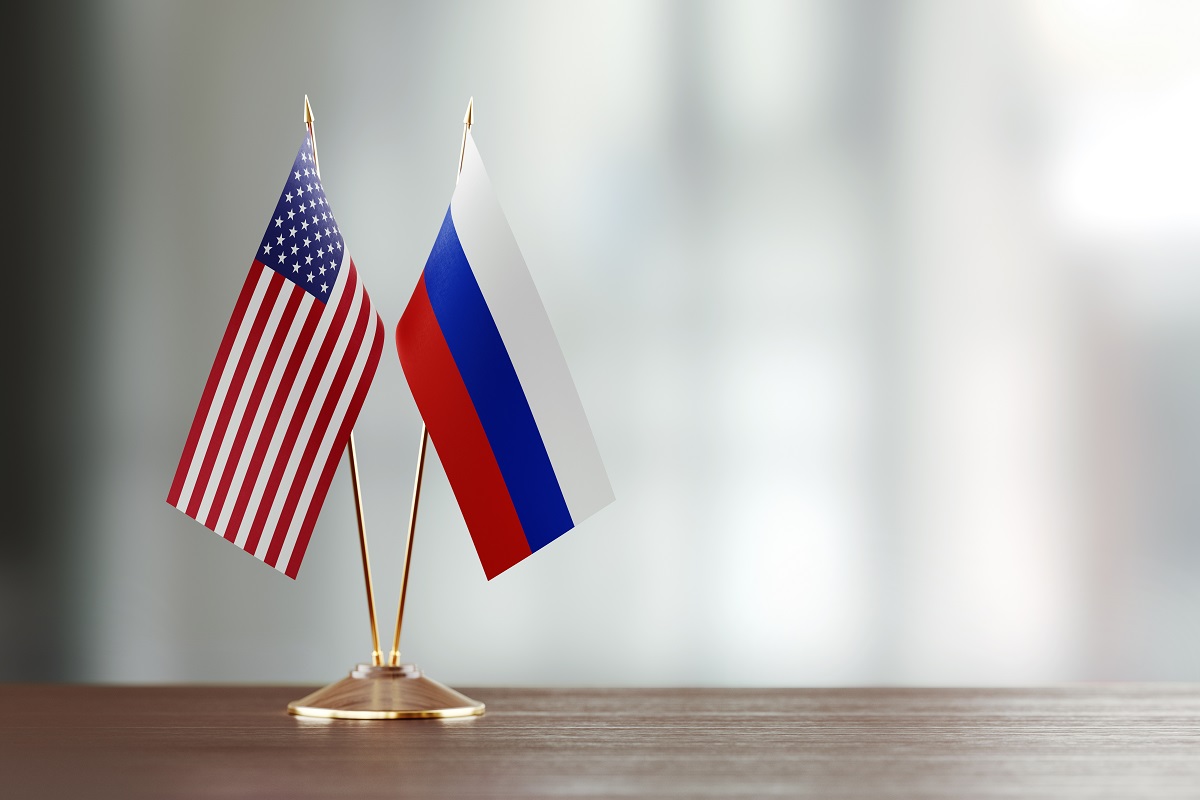Delegations joined by specialists from Russia and the United States met in Vienna on Monday to hold talks on nuclear arms control and space security, which are supposed to bring their positions on the matter carefully and avoid a new arms race amidst a deterioration in diplomatic relations between the two countries.
The U.S. delegation, which includes representatives of the State Department, the Department of Defense, the Department of Energy, and the National Security Council, focused on space security issues on the first day of the three-day US-Russia Space Security Exchange in the Austrian capital.
The U.S.-Russian working consultations on non-proliferation will also gather to discuss nuclear doctrine and warheads, transparency and verifiability as part of the U.S. effort to expand arms control to a trilateral format, in which Washington hopes to include China. The fate of the world’s last remaining major arms control deal - the New Strategic Arms Reduction Treaty, known as New START, which is set to expire in February 2021, is expected to take the center stage of the talks.
Talks on regulating militarization of space came at a time of escalating tensions between the two countries as just last week U.S. Space Command accused Russia of testing a space-launched projectile from one of its satellites, adding that Russia conducted a similar test in 2017. The Russian Foreign Ministry has rejected the accusation, stating that the test merely involved a small "inspector satellite" that used specialized equipment to inspect a Russian space vehicle at close distance.
"Russia has always been and remains a country that is committed to the aim of fully demilitarizing outer space and non-deployment of any kind of arms in outer space," TASS quoted Kremlin spokesman Dmitry Peskov as saying on July 24, commenting on the alleged anti-satellite weapon test conducted by Russia.
Some believe that Russia along with China is committed to a space treaty that stipulates that outer space is to be explored by all and purely for peaceful purposes, however, the U.S. is opposed to negotiating a treaty limiting military activities in space.
"That sounds nice on paper, [but] the challenge is that it is virtually impossible adequately to define a space weapon," Christopher Ford, the U.S. assistant secretary of state for international security and non-proliferation, said on July 24, according to The Guardian. "And even if you could, it’s almost impossible to verify that anyone would be complying with such a rule if you put it in place."
The last meeting of its kind was held in Vienne between Russian Deputy Foreign Minister Sergey Ryabkov and Special Presidential Envoy for Arms Control Marshall Billingslea last month. Discussions then were centered on arms control and strategic stability between the parties, and the prospects to get China involved in strategic nuclear arms control talks, which Beijing denied.
What is already soured relations between the world’s two biggest nuclear powers, namely Russia and the U.S., have only aggravated with the demise of the Intermediate-Range Nuclear Forces (INF) Treaty, a Cold War-era agreement that safeguarded against nuclear war between the former Cold War foes, and most recently the Open Skies Treaty. At the moment, the world is on the brink of a new nuclear arms race as New START, an arms control treaty that limits the number of weapons in Russia and the U.S., is the last tool that holds the former Cold War foes from starting a new arms race.
New START is meant to limit the number of nuclear weapons deployed by both sides, and provides for a substantial reduction in the number of intercontinental ballistic missiles, ballistic missiles on submarines and heavy bombers, as well as warheads and deployed and non-deployed launch vehicles.







 Armenian sappers commenced on Monday mine-clearance operations in the territories adjacent to the Saint Mary Church in village of Voskepar (Armenia...
Armenian sappers commenced on Monday mine-clearance operations in the territories adjacent to the Saint Mary Church in village of Voskepar (Armenia...
 Iran and Pakistan have signed eight cooperation documents in various fields, and agreed to strengthen ties to fight terrorism in the region.
Iran and Pakistan have signed eight cooperation documents in various fields, and agreed to strengthen ties to fight terrorism in the region.
 President Aliyev emphasized the critical role of the North-South Transport Corridor in fostering transport cooperation between Azerbaijan and Russi...
President Aliyev emphasized the critical role of the North-South Transport Corridor in fostering transport cooperation between Azerbaijan and Russi...



